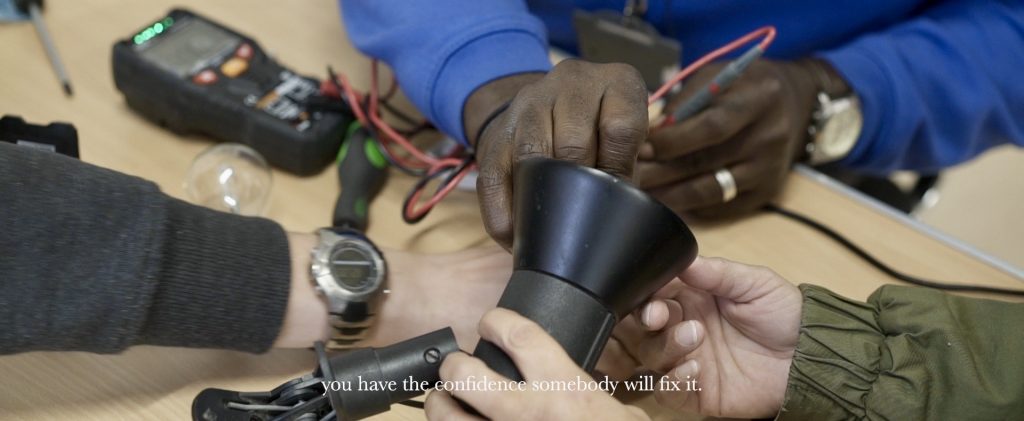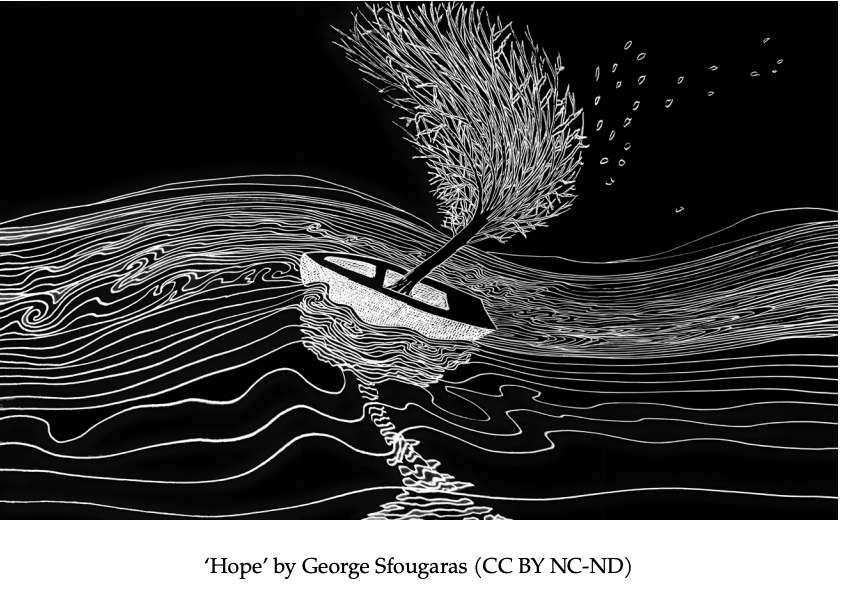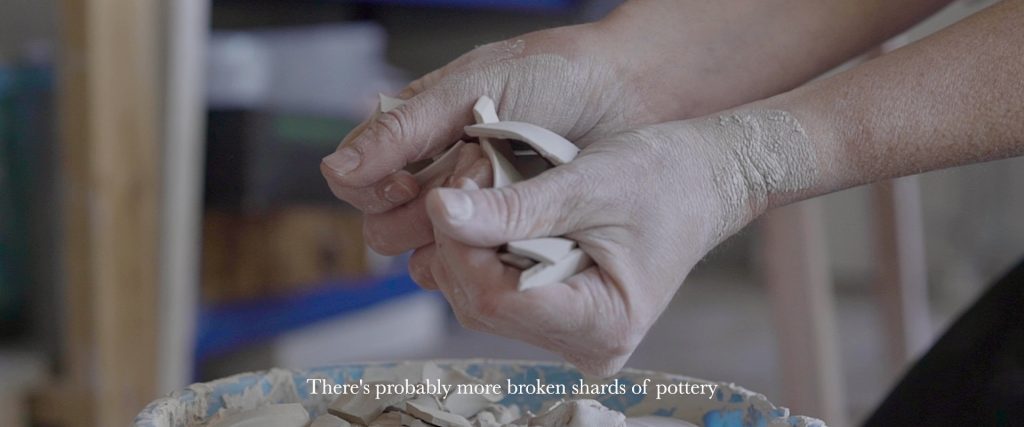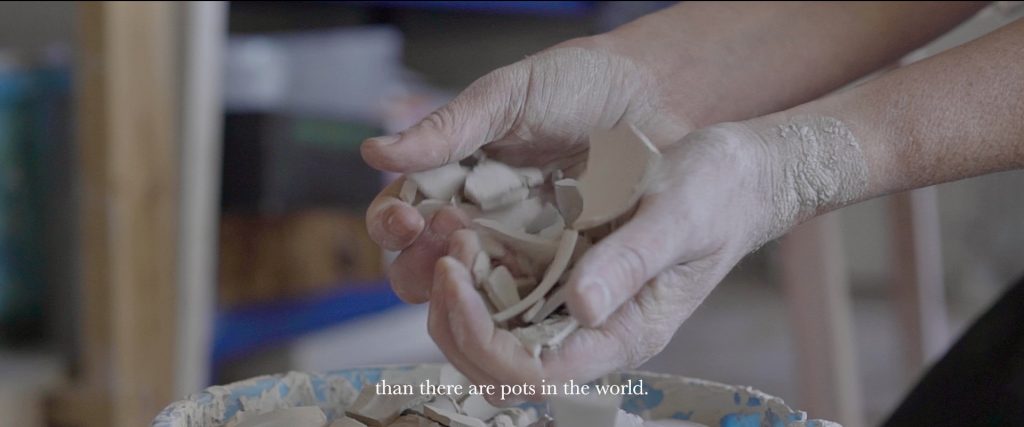Refusing Despair: a reflection on solidarity, care and mending in response to the neoliberal colonisation of higher education.
Throughout the TPP Unit, I have felt acutely the disconnect, between our ideals and ambitions as educators, and the system in which we are operating.

Throughout this Unit, I have encountered a diverse range of inspiring educators who are operating in a variety of practices across UAL. In the classroom, in tutorials, in my reading, in the micro teaching tasks and within my own work as a lecturer on the performance programme at CSM, I have encountered staff who care deeply about their students, who are passionate about higher education and who strive to constantly improve upon the quality of their pedagogical practices. I have witnessed the careful building of communities that allow staff and students to flourish, to dream and to build towards futures that are grounded in creativity, inclusivity, care and resistance to oppressive structures. In these moments I have felt immense hope.
However, despite the hope and care embodied by these educators, I cannot ignore the looming presence of the neoliberal colonisation of higher education. It hangs over us like a dark cloud, and its damage is evident.

There are cracks everywhere, and we are trying not to fall down them.
As Christine Morley articulates “neoliberal managerialism diminishes scholarship, education, students and academic staff…by denigrating academic practices and reducing their worth to market calculations that seek to manipulate and exploit profit.”(2003). In each of the workshops within the TPP Unit, group discussions repeatedly circled back to the same challenges: lack of time, insufficient support and resources, concerns about staff and student well-being, the pressure of growing student numbers, and the ongoing strain of financial issues. From precarious contracts for part-time lecturers to shrinking course budgets and the ever-increasing fees students must pay, it is clear that the system is fractured.
As Catherine Cronin and Laura Czerniewicz observe “Rare are the academics and professionals who are not dispirited, even demoralised. In the face of such despair, it feels hard to know what to do, to believe that it is possible to do anything at all, or even to find the energy to act.”(2023).
This sense of despair is widespread, and it is difficult to know how to respond. The very system that we are working within seems to be actively working against us. But, as is often the case, resistance is born from the ashes of despair. Through my research as a socially engaged artist, and as part of my collective Breaks and Joins, I have spent the past five years thinking about repair as an act of resistance. Throughout my research I have met menders of many kinds such as, physical repairers, conflict resolution specialists working in war zones, and NHS workers healing broken bones. In each of these menders I have witnessed care and tenacity. They have the ability to dismantle, reimagine, and start again with courage, resilience and curiosity. These are all attributes that I have seen in educators at UAL also, and this resistance and resilience gives me hope.


Through this research, I have reflected on the Japanese art of kintsugi – repairing broken pottery with lacquer and powdered gold. This artform can be a useful reference for considering the importance of keeping the cracks visible, so as not to forget the history of what led us to the repair. It is also a symbol of resilience and care. It is an image that resonated as I read ‘Higher Education for Good: Teaching and Learning Futures’ which quoted the adage ‘there is a crack in everything, that is how the light gets in’. Hope and resistance emerge in the breaks.
The path ahead is unclear, and the repairs needed are vast and deep. It is increasingly evident to many of us within the university that the current system is unsustainable and on a path to self-destruction. It may be possible that some parts of this broken university machine can’t be or shouldn’t be mended, particularly those that are harmful to the most marginalised in our community. Instead, we must focus on filling the cracks that deserve repair with gold, and from the wreckage of broken systems, imagine new possibilities that can grow and flourish through our community of care. Through this Unit and through meeting so many educators committed to creative, caring pedagogy, I feel a renewed sense of hope and solidarity.
References
Czerniewicz, L., & Cronin, C. (2023). Higher Education for Good. Open Book Publishers.
Hooks, B. (1999). All About Love. New York: Harper Perennial.
Hooks, B. (2003). Teaching Community: A Pedagogy of Hope. Routledge.
Lowry, C. (2024). [Online Film] Can Everything Be Mended?.
Lowry, C., & Mayo, S. (2020-2025). [Podcast] The Breaks and Joins Podcast.
Morley, C. (2023). The Systemic Neoliberal Colonisation of Higher Education: A Critical Analysis of the Obliteration of Academic Practice. The Australian Educational Researcher. [online] doi: https://doi.org/10.1007/s13384-023-00613-z.
Leave a Reply